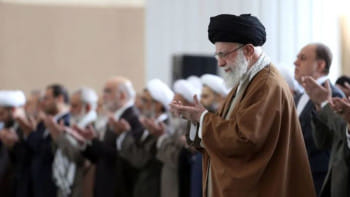A policy of choosing profit over lives

That increasing numbers of people are getting priced out of receiving life-saving cardiac treatment, after the government hiked the price of cardiac stents by 20-35 percent from February 1, is heart-wrenching. At a time when ordinary people are struggling heavily with the rising costs of living, this increased cost of a critical surgical component, which was costly to begin with, is making it impossible for many people to afford such treatment.
The government's reasoning for increasing the price of cardiac stents was the steep depreciation of the taka against the dollar. However, a deeper look into the matter reveals that there are more reasons why prices of stents in Bangladesh is much higher than in countries such as India and Nepal. Compared to India, the price of stents in Bangladesh is nearly double. A Xience Xpedition stent made by Abbott, a US manufacturer, costs about Tk 47,000 in India and Tk 70,000 in Nepal. But in Bangladesh, its maximum retail price is Tk 125,500 after the hike by the Directorate General of Drug Administration (DGDA), up from Tk 108,628. Such massive price differences were found in the case of stents made by other companies as well.
The price of stents in Bangladesh is determined as per the markup set by the DGDA's price-fixing committee. The markup was set at 1.42 percent, which includes the taxes and profit margin of the suppliers and the dealers, and also includes an 11.5 percent "retail commission" for middlemen. According to a former director of the National Institute of Cardiovascular Disease, who led the 2017 expert committee for fixing stent prices, it is high time to revisit the markup formula to ensure transparency in the stent supply chain. To start, Bangladesh needs to bargain with foreign companies to get stents at a discounted price – which foreign stent companies have done for Nepal.
But aside from that, prices of cardiac stents would be much lower if suppliers did not need to pay a commission to the physicians, health staffers, and various middlemen. And this is something that needs to be urgently cut out of the equation. According to local suppliers of cardiac medical devices, it is mainly the physicians who are getting a commission of around 20-50 percent from the stent price. In some cases, stent suppliers are also paying other health staffers involved in the process. This is pushing prices up to much greater levels for patients seeking treatment, and is an extremely unethical practice that is literally causing people to die instead of being treated.
We are shocked that this is something that the government has not yet addressed. How many people over the years have had to lose their lives so that a few middlemen – including physicians who are supposed to be saving lives – could pocket extra profit? The government urgently needs to revisit its stent pricing policy. It needs to bring the cost of cardiac treatment within the reach of ordinary people on an urgent basis.


 For all latest news, follow The Daily Star's Google News channel.
For all latest news, follow The Daily Star's Google News channel. 





Comments